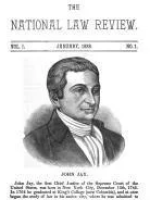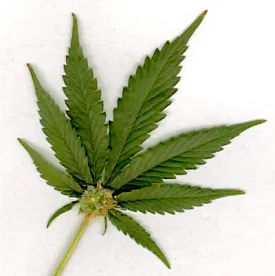In 2012, Colorado was the first state to legalize recreational marijuana with Amendment 64. While this has made Pizza Franchisors happy and sent snack sales through the roof, it has also created controversy and unintended consequences. The entire country has watched Colorado sort through these issues, curious to see how things will land, how much people really want to get high, and most of all, exactly how much money is there to be made? Along with these practical issues and enforcement questions, several legal issues have come into play as marijuana legalization—and its conflict with federal law—has changed the landscape. Perhaps most significantly are the legal challenges to Colorado’s statute in front of the Supreme Court.
Colorado’s Amendment 64 changed the State Constitution to allow for recreational use of marijuana. According to the law, Adults 21 or older can grow up to six cannabis plants, with 3 being mature at a time, and legally possess all the cannabis from those plants. Adults may also travel with up to one ounce of marijuana while traveling, and gift up to one ounce to other adults 21 or over. Consumption is regulated like alcohol. The sale and growth of marijuana is regulated by the state, with licenses available for both growers and retail outlets.
The Attorney Generals’ of neighboring states Oklahoma and Nebraska, Scott Pruitt and Jon Bruning, respectively, have sued Colorado. The complaint cites Colorado for creating a “scheme” that “frustrates the federal interest in eliminating commercial transactions in the interstate controlled-substances market, and is particularly burdensome for neighboring states [Oklahoma and Nebraska] . . . States where law enforcement agencies and the citizens have endured the substantial expansion of Colorado marijuana.” Colorado’s Attorney General, John Suthers, was against marijuana legalization when it was being debated, but now he is tasked with defending the state’s controversial measure.
Oklahoma and Nebraska take issue with Colorado’s failure to take steps to prevent the drug from leaving the state. In particular, the complaint takes issue with Colorado not requiring patrons to smoke or eat the marijuana where they purchase it, or tracking marijuana once it is sold, or requiring a background check on purchasers. The law, in fact, only requires a driver’s license that says you are 21 to purchase the drug. Colorado has no effective way, according to the complaint, to stop “criminal enterprises, gangs and cartels from acquiring marijuana inventory directly from retail marijuana stores.”
Concerns about a black market exist, and how the law might be creating gray areas in how pot is sold and cultivated. A CNBC documentary “Marijuana Country: The Cannabis Boom” examines some of these issues. Cameras follow two pot dealers as they show how loopholes in the law allow them to profit from their excess marijuana, grown legally, in a gray market heavy with craigslist postings and terminology—he is a caregiver, not a dealer, and he gifts the marijuana and receives gifts of cash in return. It’s easy to see how this gray area doesn’t stop at the state line.
In fact, law enforcement officials from counties neighboring the Colorado border say they are seeing more Colorado marijuana, some of it still in the retail packaging, flow into their counties. The strained jail budgets in these counties are a result of the increased enforcement costs—more impounded vehicles, more arrests and higher costs all around because of the pot coming down the highway. Colorado AG John Suthers says 40 states have contacted his office regarding marijuana seized within their borders, and the Washington Post has gone so far as to call Colorado “the nation’s giant cannabis cookie jar.”
It is for these reasons that Oklahoma and Nebraska have filed their complaint. Invoking the Constitutional provision that gives the Supreme Court original jurisdiction on disputes between the states, basing their complaint on the claim to the right to have federal laws prevail over contradictory state laws under the Supremacy Clause of Article VI of the Constitution. Nebraska and Oklahoma v. Coloradohas not received permission to be filed by the court. It should be interesting to see how the case develops. But with over 130 metric tons of marijuana sold, legally, in Colorado last year, the demand is not going away.
The court documents and the complaint are here.




 />i
/>i

